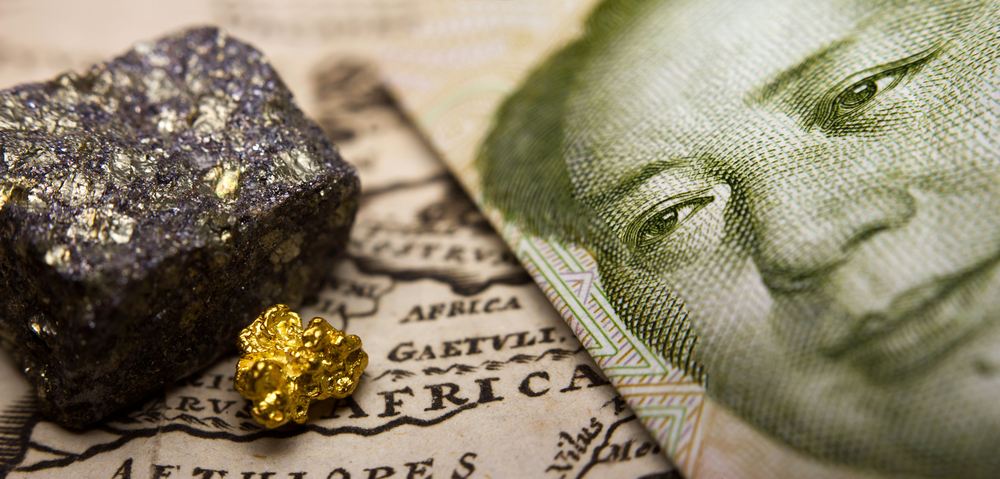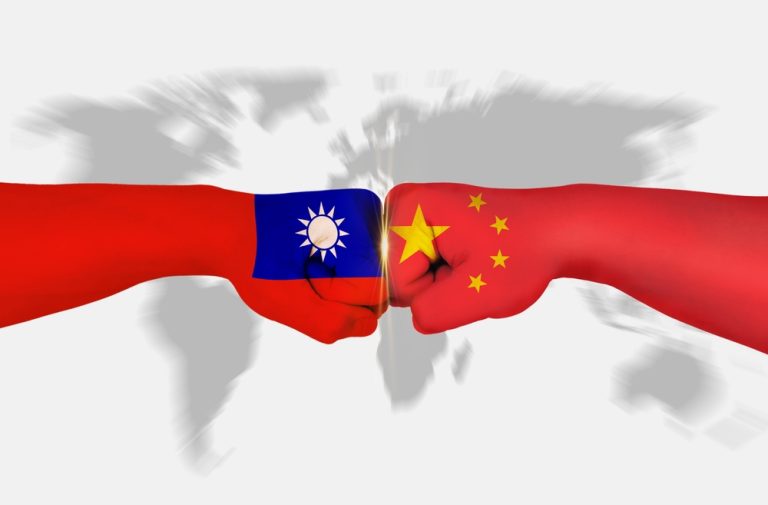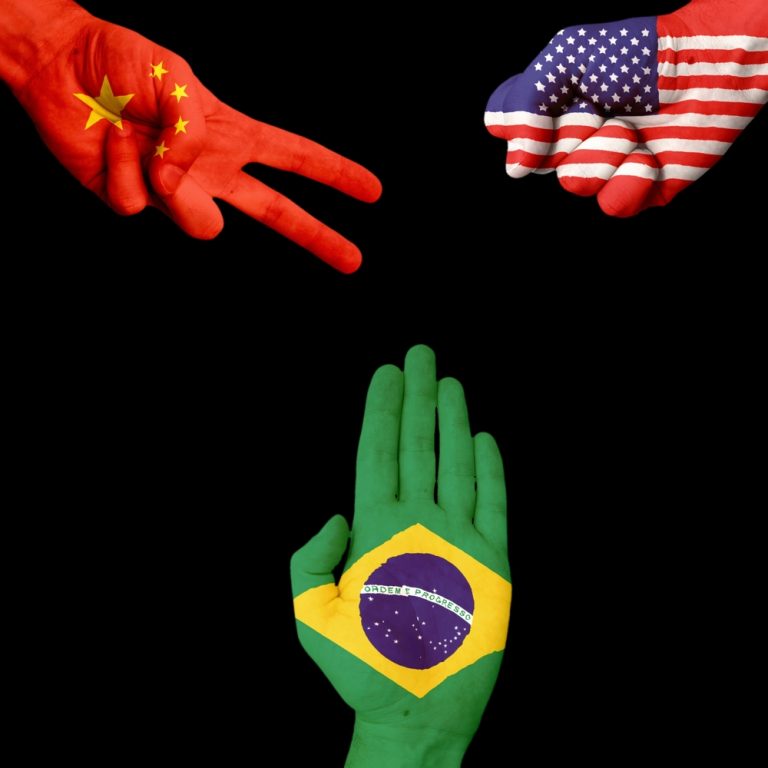
The U.S. fight against the “Chinese threat” has not yet been very effective
In the context of the global confrontation with China, the U.S. is trying to build a real military, political and economic wall in the way of its competitor. But not all measures in this way have been successful for Washington so far, and Chinese influence can be seen not only in the AUKUS “sanitary belt” region, but even in the heart of America. For example, the Pentagon expresses outright pessimism about the strategically important American situation in Taiwan. For example, the classified documents published in the network contain a very critical assessment of the real capacity of Taipei to withstand the Chinese army in case the conflict escalates into a hot phase. Taiwan’s air defense systems, which are estimated to be obsolete, are unlikely to be able to detect missile launches from military bases on mainland China. Taiwan also has a problem with counter-battery radars, as well as communication encryption systems. Of Taiwan’s 300 F-15, F-16 and Mirage 2000 fighters, only half are capable of performing combat missions, and now Taiwan is urgently buying another 66 F-16 fighters from the United States. But the problem is that the delivery of new fighters is expected after 2025. In addition, it will take two weeks for Taiwan to hide the fighters from missile attacks. China could not only destroy them during this time, but also land its troops on the island. The U.S. believes that the aim of the landing will be the port of Taipei, after capturing which it will be easier for China to supply its troops with fuel through the strait. In fact, Taiwan has no chance to compete with China on its own. It can only rely on U.S. intervention, but the Pentagon fears that its options will be limited, especially if U.S. bases in southern Japan and the Philippines are destroyed by Chinese hypersonic missiles. Total U.S. losses, according to military models, risk being enormous: several sunken aircraft carriers, dozens of ships, hundreds of fighters and thousands of soldiers.

Problems are also evident in the area of anti-Chinese sanctions. China has begun to respond to U.S. pressure in a targeted and surgical manner, including in areas where it can harm the U.S. economy. Beijing has imposed sanctions on defense giants Lockheed Martin and Raytheon Technologies. Formally, they were imposed for supplying weapons to Taiwan, but de facto it is a deliberate blow to the logistics chain of the U.S. military industrial complex, which depends on supplies of rare-earth metals from China. Last year, the shortage of rare earth metals has already led to production disruptions of the F-35 fighter jets, and they were produced less than 90 units for the year instead of the planned 150. It takes 400 kg of rare earth metals for one F-35, and 90% of the rare earth metals market is controlled by China. Beijing calls the U.S. policy a “technological blockade” of China, and in response the CCP began to squeeze foreign auditing companies out of the country accusing them of passing secrets to American and European intelligence. The semiconductor sector has also come under attack, with the U.S. imposing sanctions against China. Chip manufacturers, such as Intel, are heavily dependent on the Chinese market, so China has leverage on them. Restrictions on exports of lithium and finished batteries are next in line, because China controls more than 80% of the market for both solar panels and batteries for electric cars. And without the participation of America’s main competitor, the current “green reforms” in the West could fail, although there are more and more doubts about their advisability. In the future, China will emphasize the exodus of Western companies from Taiwan, which are reducing their presence there amid constant military exercises and Washington’s own desire to re-industrialize the United States. This is already creating economic problems for the current government in Taiwan, and could lead to its defeat in elections, after which Beijing will have a chance to peacefully integrate the island into greater China.
The U.S. is also unsure of the loyalty of its European allies on the anti-China front, and Washington reacted hastily to Macron’s statements about his reluctance to intervene in the Taiwan crisis. This has become particularly important against the backdrop of the failure of the Americans to fulfill many of their commitments to the island’s government. For example, the U.S. recently signed a contract to supply 400 Harpoon missiles to Taiwan for a total of $1.2 billion. To be clear about the situation, they were negotiated back in 2020. However, the timeframe for fulfilling the missile contracts will stretch until at least 2029. That is the main problem for Taiwan, which still cannot receive $19 billion worth of arms from the United States, and major deliveries are unlikely to begin before 2027. Although Taiwan has been promised new F-16 fighter jets, tanks, artillery and missiles, the delivery dates have been constantly shifted to the right. This has now been exacerbated by the Ukrainian crisis and the inability of the U.S. military industry to simultaneously cover the needs of Kiev and all key U.S. allies, including Taiwan.
Not surprisingly, Asia and Europe were also very skeptical of the G7 meeting in Japan, where they promised to support Taiwan. This was some attempt to show “unity” among American allies against China, but no decisions were made on Taiwan, and the G-7 participants could not even agree on how to characterize China as an “enemy” or a “rival”. It is clear that the “anti-China consensus” in the West exists only on paper, and Europe is strongly divided between those who are ready to go head-on against Beijing at the call of the United States and those who understand that this will end in the collapse of the European economy. This division will only deepen further, especially if centrifugal processes in the global economy accelerate and the U.S. faces political instability amid elections in 2024. Macron only expressed the common European position of the traditional front, where European countries are ready to “adjust” to the new world hegemon, rather than fight for the interests of the old one to the last drop of blood.

But the most unpleasant thing for the U.S. confidence in its stability and security happened not in Europe or Asia, but in the largest city of the country, New York. Law enforcers and the FBI arrested two Chinese there, accused of setting up an underground Chinese National Police station in Chinatown. A variety of services were provided to Chinese citizens there, such as assistance in obtaining documents. However, most importantly, the FBI accuses the Chinese police officers of having been instructed by Beijing to monitor Chinese dissidents living in the United States. Moreover, the officers of this precinct did not even conceal their activities, and their office was visited by diplomats from the Chinese consulate. They were also in frequent contact with the Ministry of Public Security in Beijing. The crackdown came after statements from Chinese dissidents who complained that they were under pressure to return to their home country of China. The general anti-Chinese sentiment in American society also had an impact on the development of the case. However, in any case, this story is very painful for the reputation of New York, where, as it now turns out, a parallel police force has been operating for a long time. This is especially telling in connection with the crisis of the American police. Now in New York City, after police cuts and the election of liberal prosecutors, crime rates have skyrocketed to a 15-year high. Not surprisingly, various diasporas are beginning to form their own police structures in the face of law enforcement’s inability to fight crime. This will happen often in liberal metropolitan areas that are increasingly multicultural and ethnically divided.
But after the arrest of the Chinese police officers, the problem was not solved and only worsened, because it turned out that the total number of similar stations in the United States and Europe goes into the dozens. There are branches of the Chinese National Police in Great Britain, Canada, the Netherlands, Ireland, Germany, and virtually everywhere else where there is a significant Chinese diaspora. Moreover, in some countries, such as Italy, Croatia and Serbia, Chinese police officers quite officially provide security services in places where their compatriots live. In this regard, Western countries are once again split on the issue of China. In the U.S. and Britain, dominated by the anti-Chinese lobby, they are calling for a general campaign to shut down Chinese police stations. In countries that seek to maintain a working relationship with China, they point out that Chinese police officers do not violate their laws in any way. The Chinese diaspora maintains strong ties to its homeland, so it is quite happy to be able to work with its police even abroad. The U.S. accuses Chinese policemen of violating the Democrats’ favorite “human rights”. Congress demanded that Biden intensify the fight against the Chinese, calling it a transformation of the U.S. into a “hunting ground” for foreign intelligence. This has already led to an exodus of Chinese scientists from leading American universities. Obviously, the pressure on the Chinese will only intensify, and many diasporas will indeed consider returning home, not wanting to find themselves in the position of the Japanese at the beginning of World War II. Obviously, the anti-Chinese radical Republicans and Democrats are blowing hysteria. But there is an objective side to their conclusions that is not too optimistic for Washington. The power of China’s ethnic, cultural, political and economic expansion is now so great that the U.S. will find it difficult to contain it even in Europe and South America under its control. As a result, China is clearly winning the first round of the global battle with the U.S.

